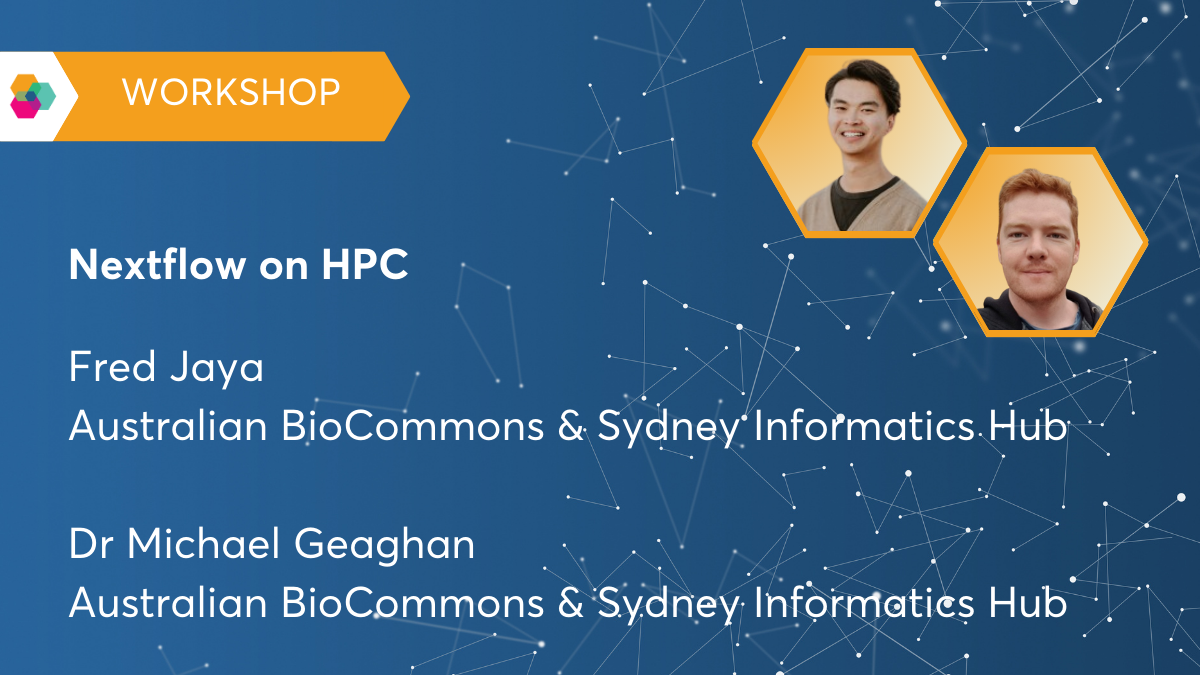Taking Nextflow to the next level: HPC Workshop applications now open
Life sciences research increasingly depends on analysing large and complex datasets. Tools like the workflow management system, Nextflow, can make this process reproducible, scalable, and efficient. But for many researchers, getting started with Nextflow can feel like a daunting leap.
Earlier this year the Nextflow for Life Sciences workshop introduced the fundamental principles of Nextflow pipeline development and guided newcomers to build reproducible and scalable scientific workflows with Nextflow, creating a multi-sample Nextflow workflow for RNAseq data preparation as an example. Led by trainers from the Australian BioCommons team at SIH, University of Sydney and supported by the National Bioinformatics Training Cooperative, 90 learners gathered at satellite sites in Sydney, Melbourne, Brisbane, Adelaide, Canberra and Perth, giving researchers the chance to connect locally with peers while benefitting from the national-level training.
Participants praised the balance of theory and practice, and nearly 90% of attendees rated the content as “very good” or “excellent”. A key highlight was the use of research-relevant datasets that empower scientists to apply their new skills directly to their work. As one participant reflected, “I got lots of knowledge on how to build my own Nextflow pipeline. The RNAseq example was fantastic - so many workshops use ‘Hello World’ examples that are impossible to scale up.”
We are excited to announce that applications are now open for our follow up workshop Nextflow on HPC to be held in November. This hands-on workshop will will provide participants with the practical skills to configure, optimise, and troubleshoot Nextflow pipelines for efficient and scalable execution on High-Performance Computing (HPC) systems.
Participants can expect to learn how to identify the differences between traditional HPC job submission and workflow execution via Nextflow, and how to best configure and execute scalable Nextflow workflows on HPC systems. Managing software environments using tools like singularity, and adapt these to fit within different HPC ecosystem constraints will be covered, along with tips on troubleshooting Nextflow workflows on HPC systems.
To make the most of this workshop you’ll need to have experience running simple Nextflow pipelines, and be looking to scale up your workflows to an HPC environment. You will be supported with access to national Tier 1 computing resources at Pawsey and NCI, so you must be associated with an Australian organisation.
These Nextflow workshops are part of Australian BioCommons’ mission to make advanced bioinformatics tools more accessible to researchers across the country. By combining national expertise with local support, this training is helping build capacity and strengthen the life sciences community.
Find out more about the workshop and submit your application: Nextflow on HPC.
Applications close 3 November 2025.

